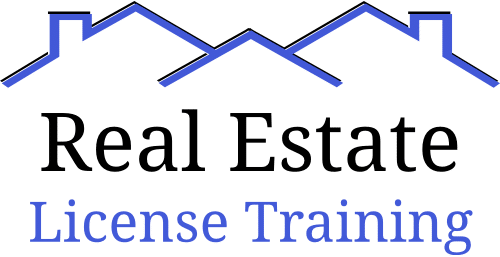For a real estate agent, a typical day consists of several things — reaching out to prospective clients, meeting with homeowners wanting to sell their property, showing houses to those looking to buy…
It doesn’t end there. You also need to make sure the paperwork is in order and market yourself in various channels.
From understanding client needs to building relationships and ensuring each interaction is personalized — how on earth are you supposed to manage all that?
Thankfully, gone are the days that you have to do everything manually.
With the number of things you have to accomplish regularly and the amount of information you need to keep track of, one of the best investments is a CRM.
But what is a real estate CRM?
How can it benefit you?
We’ll be answering those questions here.
So let’s get started!
What is Real Estate CRM?
CRM, or Customer Relationship Management, can be viewed as two things:
- A strategy
- A software
That said, these two can be considered two sides of the same coin since they lead to the same destination: the growth of your real estate career.
As a strategy, CRM is a tool that allows real estate agents to work smarter. Not to say that you can stop working hard. But if you maximize this platform, you can store all client information in one database, making it easy to keep track of.
As a software, CRM assists in every phase of your sales funnel. Whether you’re prospecting or just about to close, regardless of whether you’re dealing with a new client or an existing one, the CRM software can help.
What are the Types of Real Estate CRM?
Real estate professionals can choose between two types of CRM:
- Desktop
- Cloud-based
Desktop CRM software, as the name implies, keeps all of your data on a local drive. You have to physically access the information you need with a laptop or computer.
Cloud-based CRM allows you to use the platform on the go. As long as you have access to the internet, you can retrieve or update information. It works particularly well when you have a full day — you can keep your data current while you’re waiting for your open house to begin or between client calls.
What are the Benefits of Using CRM in Real Estate?
Don’t get us wrong — having a CRM doesn’t replace you or your interactions with your client. I mean, there’s nothing that spells real estate success better than building a personal relationship with your clientele.
The reality is you still need to make sure you manage your contact, do follow-ups, and stay on top of your calendar.
That’s where the CRM comes in handy. It helps you manage your real estate career effectively and efficiently. It results in you having more time to focus on relationship-building activities.
To break it down, here are some benefits to using CRM in real estate.
It keeps all your data organized
It’s easy to keep track of clients’ information when you’re starting in the real estate industry and only have a handful.
When your career grows, however, keeping everything in line isn’t as easy as it used to be. A CRM tool allows you to have one centralized system that keeps track of all the information you need.
So with this software, you can remember what this prospect is interested in, send a text to this client, and so on.
It allows you to generate and segment your leads better
You may find yourself overwhelmed with the number of parties interested in getting in touch with you when business is doing well. If you’re not careful, you’ll end up spreading yourself too thin.
It’s also possible, with the number of leads, some fall through the cracks. And each of these is a lost opportunity. Remember, just because they don’t buy now doesn’t mean they won’t buy later. Or, some leads that don’t work out can lead to others that do.
But if you’ve lost some, along with it goes all the possibilities. A CRM reminds you to take action with these leads.
It allows for better pipeline management
Clients go through your sales pipeline at varying speeds. Some are ready to buy or sell, and as soon as they find the right property, they sign. Some need more convincing, so you need to let them simmer a bit longer.
Using a CRM can help you spot patterns you may not necessarily see from reports. You may find most of your clients stuck in a specific part of your pipeline. It could also help you see which areas you can work on to speed up the sales cycle.
It keeps you on top of follow ups
You’d be surprised how many sales opportunities are lost because real estate agents fail to follow up on their leads/clients consistently. Studies have shown the top reason why prospects don’t convert into clients is that agents fail to follow up with them.
A CRM reminds you when you should reach out to them. There’s nothing a client appreciates more than an agent who takes the time to communicate with them.
One great benefit is you can set up your system to remind you to do something. It can even send messages on your behalf, using your prospect’s preferred channel of communication.
It helps you maintain relationships with former clients
Those who have done business with you in the past are nuggets of gold in real estate.
You’ve already invested a large chunk of time and effort and already have a relationship with them. If you start ignoring them after a close, it may leave the impression that they no longer matter now that they’ve bought something from you.
It typically results in one-time deals — they may have bought from you again.
Research shows most buyers don’t mind doing repeat business with their agents, but it seldom happens. Their agents weren’t incompetent — they just failed to keep in touch.
Since CRM gives you a database of all your clients, you can easily reach out to them. Yes, even just through an automated text or email.
It allows you to connect your clients
Yes, we’re talking about referrals. But it’s not just getting them — it’s about giving them, too.
Your CRM allows you to save pertinent information about your clients. So you’ll have their names, contact details, professions, and business information.
If it’s tax season and one of your clients needs an accountant, why don’t you connect him to someone who can help from your database?
It’s what you call going the extra mile, and nothing tells your client you care better than that.
Conclusion
A Customer Relationship Management software is more than a tool. It’s a way of life. Better yet, it is an efficient way to manage your real estate career.
Why should you spend hours doing different tasks manually when a platform can help you with these? In turn, it gives you more time to take care of your clients — getting to know them, building a relationship, and personalizing your service.
It doesn’t just help you. It puts you in a better position to help your clients.
And that’s what spells success for a real estate agent.

